- Home
- Quizzes
- My Quiz Activity
- Newsletters
- Sports Betting
- MY FAVORITES
- Add Sports/Teams
- SPORTS
-
NFL
- NFL Home
- Arizona Cardinals
- Atlanta Falcons
- Baltimore Ravens
- Buffalo Bills
- Carolina Panthers
- Chicago Bears
- Cincinnati Bengals
- Cleveland Browns
- Dallas Cowboys
- Denver Broncos
- Detroit Lions
- Green Bay Packers
- Houston Texans
- Indianapolis Colts
- Jacksonville Jaguars
- Kansas City Chiefs
- Las Vegas Raiders
- Los Angeles Chargers
- Los Angeles Rams
- Miami Dolphins
- Minnesota Vikings
- New England Patriots
- New Orleans Saints
- New York Jets
- New York Giants
- Philadelphia Eagles
- Pittsburgh Steelers
- San Francisco 49ers
- Seattle Seahawks
- Tampa Bay Buccaneers
- Tennessee Titans
- Washington Commanders
-
MLB
- MLB Home
- Arizona Diamondbacks
- Atlanta Braves
- Baltimore Orioles
- Boston Red Sox
- Chicago White Sox
- Chicago Cubs
- Cincinnati Reds
- Cleveland Guardians
- Colorado Rockies
- Detroit Tigers
- Houston Astros
- Kansas City Royals
- Los Angeles Angels
- Los Angeles Dodgers
- Miami Marlins
- Milwaukee Brewers
- Minnesota Twins
- New York Yankees
- New York Mets
- Oakland Athletics
- Philadelphia Phillies
- Pittsburgh Pirates
- San Diego Padres
- San Francisco Giants
- Seattle Mariners
- St. Louis Cardinals
- Tampa Bay Rays
- Texas Rangers
- Toronto Blue Jays
- Washington Nationals
-
NBA
- NBA Home
- Atlanta Hawks
- Boston Celtics
- Brooklyn Nets
- Charlotte Hornets
- Chicago Bulls
- Cleveland Cavaliers
- Dallas Mavericks
- Denver Nuggets
- Detroit Pistons
- Golden State Warriors
- Houston Rockets
- Indiana Pacers
- Los Angeles Clippers
- Los Angeles Lakers
- Memphis Grizzlies
- Miami Heat
- Milwaukee Bucks
- Minnesota Timberwolves
- New Orleans Pelicans
- New York Knicks
- Oklahoma City Thunder
- Orlando Magic
- Philadelphia 76ers
- Phoenix Suns
- Portland Trail Blazers
- Sacramento Kings
- San Antonio Spurs
- Toronto Raptors
- Utah Jazz
- Washington Wizards
-
NHL
- NHL Home
- Anaheim Ducks
- Arizona Coyotes
- Boston Bruins
- Buffalo Sabres
- Calgary Flames
- Carolina Hurricanes
- Chicago Blackhawks
- Colorado Avalanche
- Columbus Blue Jackets
- Dallas Stars
- Detroit Red Wings
- Edmonton Oilers
- Florida Panthers
- Los Angeles Kings
- Minnesota Wild
- Montreal Canadiens
- Nashville Predators
- New Jersey Devils
- New York Islanders
- New York Rangers
- Ottawa Senators
- Philadelphia Flyers
- Pittsburgh Penguins
- San Jose Sharks
- Seattle Kraken
- St. Louis Blues
- Tampa Bay Lightning
- Toronto Maple Leafs
- Vancouver Canucks
- Vegas Golden Knights
- Washington Capitals
- Winnipeg Jets
- NCAAF
- NCAAM
- Boxing
- Entertainment
- Lifestyle
- Golf
- MMA
- Soccer
- Tennis
- Wrestling
- More Sports
- RESOURCES
- My Account
- YB on Facebook
- YB on Twitter
- YB on Flipboard
- Contact Us
- Privacy Policy
- Terms of Service
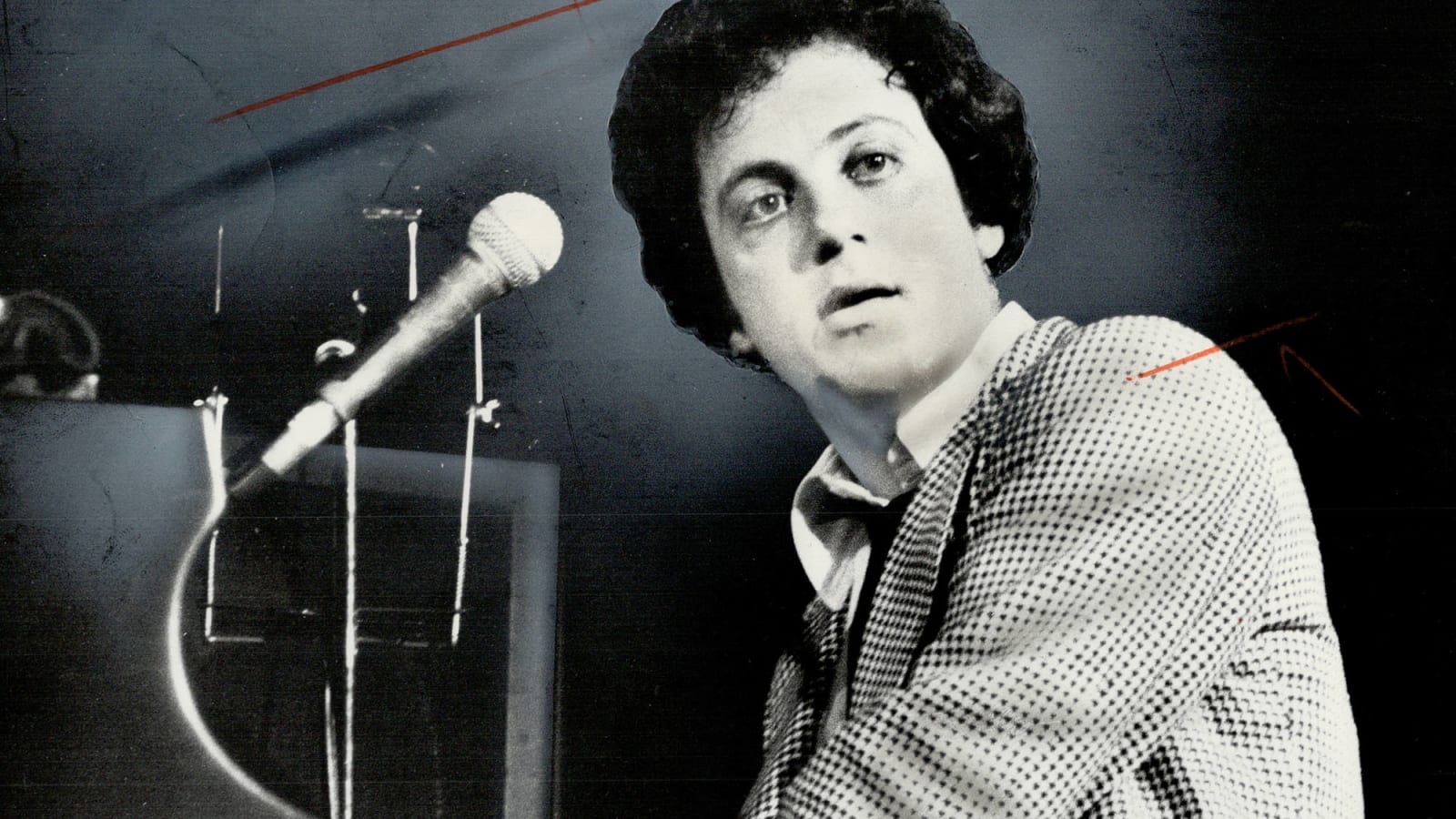
Sing us a song, you're the piano man: The ultimate Billy Joel playlist
Billy Joel has always been thought of as a radio-dominating piano popper, but the depth of Joel's talent and craft has been something that allowed his legacy to live on well past the point after he stopped making albums. His "Greatest Hits" compilations are some of the best-selling albums of all time, due in part to the fact that Joel isn't summed up by a single song. You can try, certainly, but would you really pit "Piano Man" vs. "Scenes from an Italian Restaurant"? "For the Longest Time" against "And So It Goes"?
Ranking his works has been attempted on podcasts, but we're here to give you the ultimate Billy Joel playlist, not only touching on his airwave-dominating hits but also on every truly great song of his, ranging from his unfairly maligned debut "Cold Spring Harbor" to his contribution to the 1988 Disney film "Oliver & Company." As he celebrates his 70th birthday, it feels only appropriate to give tribute to one of the big shots of pop music history with this present of a playlist.
"She's Got a Way" (1972)
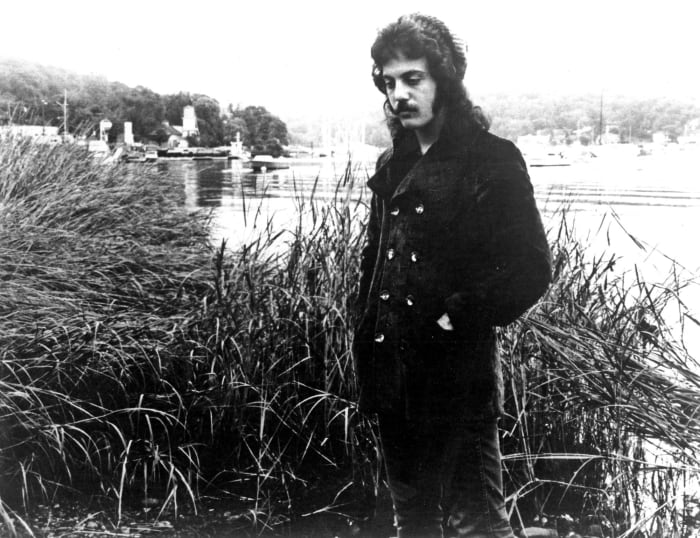
Joel had been in a few bands prior to his solo debut (including the hilariously maligned organ/metal duo Attila), but his introduction to the world as a romantic pop traditionalist surprised everyone who knew him. Unfortunately back then he was an absolutely unknown quantity, and "She's Got a Way" — his first ever single — failed to chart literally anywhere. Now? It's an AM radio and wedding dance staple. It's lyrics are a bit syrupy, but it's still a standout ballad in a career that's full of them.
"Nocturne" (1971)
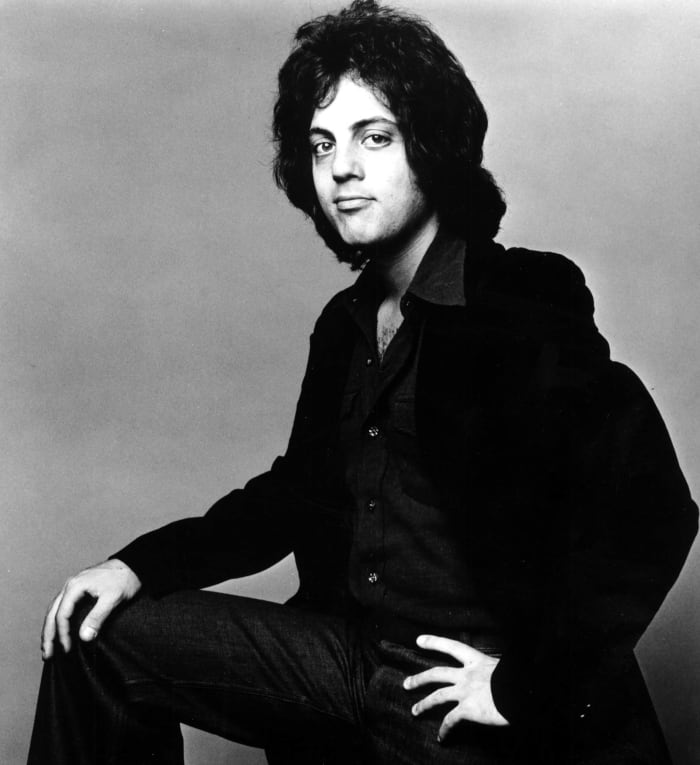
Still in his 20s, Joel showed remarkable care in his compositional craft. While too traditionally structured to be considered classical, "Nocturne," the penultimate track to "Cold Spring Harbor," immediately showcased Joel's gifts as both composer and player, with lyrical melodies floating in and out with a near-cinematic grace. He wouldn't truly touch on his love of classical until his 2001 effort, "Fantasies & Delusions," but this remains a fascinating curiosity in his early catalog.
"Got to Begin Again" (1971)
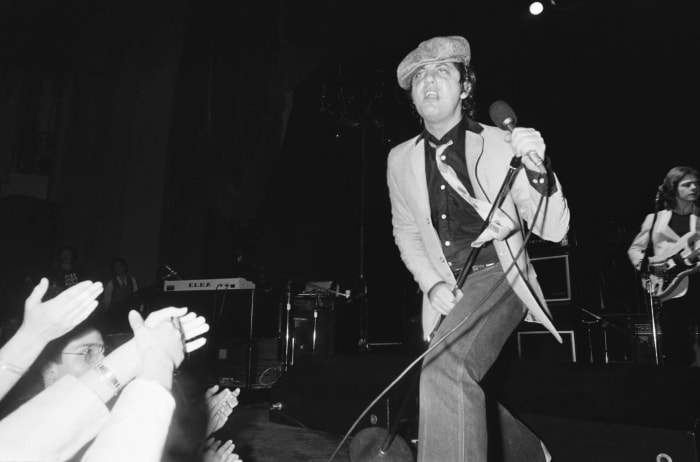
Pulled straight from the '70s singer-songwriter playbook (with a few stylistic shades of Carole King thrown in), the closing ballad of Joel's first album is a lovely number about heartbreak and starting over, and it remains a quiet fan favorite. Joel rarely trots it out in concerts, as he's indifferent to his debut album: It was mastered at the wrong speed, which in turn pitched every song up, altering the arrangements and his voice. Despite numerous remix attempts, Joel still largely has dismissed his first solo foray. Shame, too: Fans are missing out on would-be-classics like this.
"Falling of the Rain" (1971)

Some may call the arrangement a bit hokey, but for a debut album that is so flush with ballads, it's great to hear Joel experiment with some uptempo numbers, and "Falling of the Rain" remains a forgotten gem of his early era. A story song with overstuffed piano melodies and Joel's elegant, dynamic playing style, this piece has a bit of Broadway pomp behind it, which makes its exclusion from the short-lived Billy Joel-themed/Twyla Tharp-helmed musical, "Movin' Out," all the more curious.
"Piano Man" (1973)
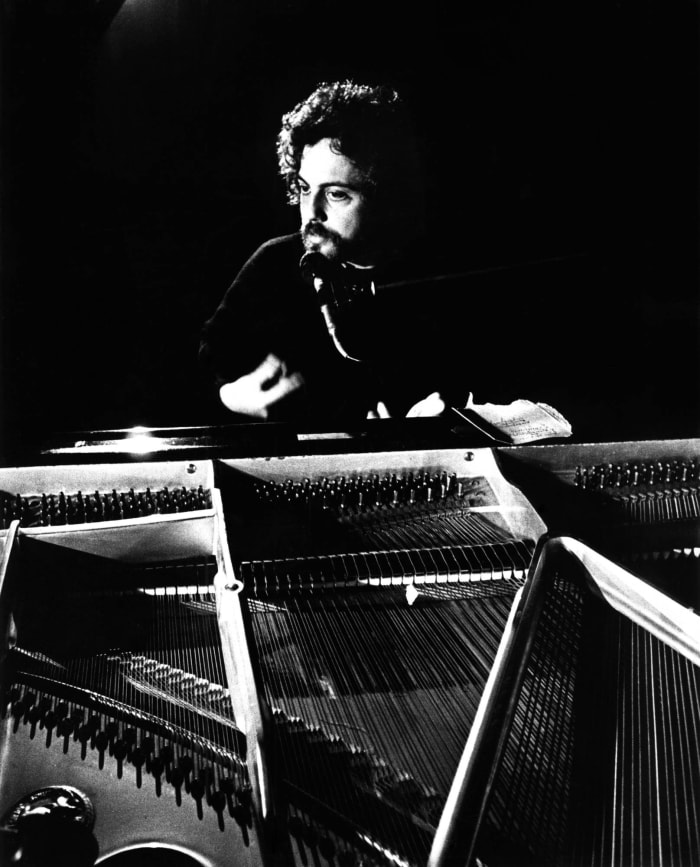
Billy Joel is known for a litany of hits, chart-toppers and era-defining singles, but if you really had to boil down his whole aesthetic to a single song, it would unquestionably be "Piano Man." By his own admission, it's fairly repetitious (save for that grounding "la la la di di da" break), but this spiraling story song is a snapshot of different people at different points in their lives, sharing their regrets and dreams openly at a bar. It's a humanizing character portrait that also serves as a rousing singalong. It was his first true hit and quite possibly the one we will best remember him for. Iconic.
"Captain Jack" (1973)

A portrait of small-town loneliness alleviated by the foolish and regrettable use of heroin, "Captain Jack" is one of Billy Joel's more striking, pointed and surprisingly rousing rock numbers, placed right at the end of the "Piano Man" album. Clocking in at over seven minutes, it's the second longest song in Joel's entire discography (beaten out only by "Scenes from an Italian Restaurant") but has been included on enough hits compilations to warrant celebration in its own right.
"Travelin' Prayer" (1973)

For an album called "Piano Man," it's notable that Joel decided to open the record with a country shuffle of a number that is driven largely by drums and a bouncy bass guitar. By the time the wild banjo licks kick in, it's clear that this is the work of someone who has clearly progressed beyond the cut-and-dry piano-ballad template set out by his debut album. "Travelin' Prayer" has a sweetness to it — simply wishing for your partner to make it home safe to your arms — but the production and tight rhythm gives it a color and brightness that we hadn't heard from Joel up to this point. As unexpected a stylistic detour as this was, it still became the third single to drop from the "Piano Man" album.
"You're My Home" (1973)
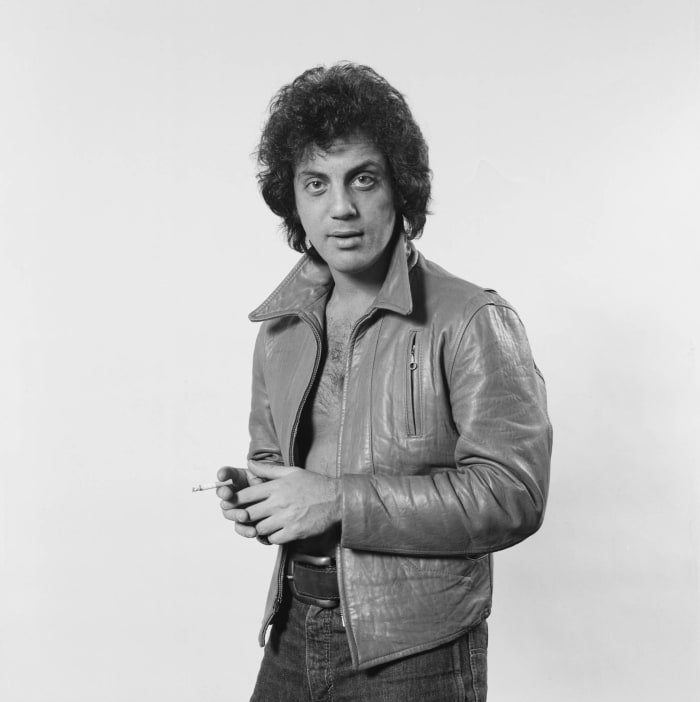
Never released as a single, the guitar-based "You're My Home" has nonetheless gone down as one of Joel's most unabashed love songs. Sure, some people wonder whether it's romantic to refer to your partner as your "instant pleasure dome," but this buoyant, fleshed-out pop arrangement carries a breath of optimism that sometimes isn't found in Joel's '70s work. It's gotten more recognition as time has worn on, but it remains one of the great gems waiting to be discovered by casual fans.
"The Entertainer" (1974)

"Streetlife Serenade," Joel's third album, remains one the lowest-selling in his discography, and some put the blame on the lead single, "The Entertainer," wherein some felt he was somewhat revising his "Piano Man" template but this time telling his own tale of fame and success. In actuality, this is a sprawling, rather humorous romp through the life of a pop star that's as wry as it is offbeat, marrying his triumphant piano rolls with heavy bass and banjo work. Even in the lyrics, he references how "Piano Man" was cut down to a radio edit clocking in at three minutes, five seconds, adding some real-life snark to what is overall a great, oft-overlooked early period single of his.
"Los Angelenos" (1974)

Oh, you want to talk Billy Joel songs that should've been singles but never were? Welcome to my TED Talk. His discography is littered with tracks that are probably chart entries in alternate dimensions, but "Los Angelenos" is a slice-of-life tale that celebrates Los Angeles' diverse cultures and backgrounds. Yet that half-screamed title is the hook that keeps us coming back time and time again, that boppy, funky melody driving us the whole way and making up for all the time gone by.
"Root Beer Rag" (1974)

For being as great a piano player as he is, one keeps forgetting that Joel played around with other instruments as well. For this fun, lively rag that punctuates the mostly joyous "Streetlife Serenade" album, his Moog takes on all sorts of squelchy and squashed forms, ultimately adding some kitschy bite of this run through Tin Pan Alley nostalgia. Joel's playing is fast and precise, and for all his pop-rock inclinations, it's always a treat to hear him go on an instrumental riff like this, something we got only occasional glimpses of throughout his career.
"Say Goodbye to Hollywood" (1976)

While "New York State of Mind" is considered a classic in and of its own right, we want to make sure that "Say Goodbye to Hollywood," the underrated lead single from Joel's self-produced "Turnstiles," gets its proper due. It's a literal farewell, as Joel was moving from California back to New York City, figuring his home turf would breed success better than his time out in the world of "the industry" would. The string arrangements help sell this song that serves as both salute and satire to his one-time home.
"Angry Young Man" (1976)

Marry the most rapid-fire ivory tickling in Joel's career to a Broadway-ready number about the indignant attitudes youth has toward the unfairness in the world ("..and there's always a place for the angry young man / With his fist in the air and his head in the sand"), and you have the makings of a classic Joel number. He's rather sardonic in the lyrics here, but they carry a universal message: A printout of the lyric sheet sounds like the same thing boomers have to say about the up-and-coming millennials of our current day and age, no?
"Summer Highland Falls" (1976)

Even though "Turnstiles" is probably best known for the oft-cited gem that is "Miami 2017 (Seen The Lights Go Out On Broadway"), it's easy to forget how Joel's songwriting was getting more and more mature with each passing year. On this beautiful, shimmering tale of regret, Joel marries some lovely instrumentation to a story about a relationship that just isn't working, mixing keen insight with a sense of romantic resignation. ("For we are always what our situations hand us / It's either sadness or euphoria.") It's absolutely worth a relisten and deserving to sit among the ranks of his finest works — which is good, as Joel himself considers this one of his best.
"Anthony's Song (Movin' Out)" (1977)

While he previously wrote songs about a young, cowardly, entitled generation with a slight bit of cynicism, "Anthony's Song (Movin' Out)" flips his own philosophies on their heads, instead painting the lives of many working-class New Yorkers in terms of realizing their dreams are bigger than their surroundings. The production is layered and colorful (those post-chorus saxophones!), the melody is immediately memorable and it is unquestionably one of Joel's pop masterworks.
"Scenes from an Italian Restaurant" (1977)

The longest song in Billy Joel's catalog is also his most acclaimed — and remarkably never got released as a single. Instead, this highly structured story-song updated the "drifting narrator" conceit he used in "Piano Man" to aim for character studies that were broader and more specific at the same time. Forgoing the looping melody of "Piano Man" in favor of suite-style segues (all of which are seamless), "Italian Restaurant" might be Joel's single greatest songwriting achievement, mixing his love of conversational lyrics with broader observations of how the dreams of many Baby Boomers may not have amounted to what they wanted, that societal bitterness burning like the aftertaste of a bottle of white. This is Billy Joel at his most essential.
"She's Always a Woman" (1977)

At times violent, at times utterly lovely, "She's Always a Woman" is a candid look at love and obsession, recognizing the flaws in your partner while loving her despite them. There's a heart to this song and a lyrical stance that is unique, to say the least, 'cos even though this woman would "carelessly cut you and laugh while you're bleeding," she'll also "bring out the best and the worst you can be." Every lover is a mixture of qualities, and love, as we know, is complicated, which Joel captures rather succinctly in what ended up being his third top 20 single in the U.S.
"Vienna" (1977)

In a broad sense, "Vienna" is a song about Joel's father, who was absent for most of his teenage and young adult life, having moved to Vienna to basically retire and get away from his family. Joel found that Vienna had a great reverence for the elderly, so the song "Vienna" is loving and mocking at the same time, asking if you should even bother having dreams and ambitions when you can go to this idealized countryside at a moment's notice and just live out the rest of your days. On the surface this slow number has obvious metaphors, but the more you dive into it, the more meaning and nuance can be found.
"Only the Good Die Young" (1977)
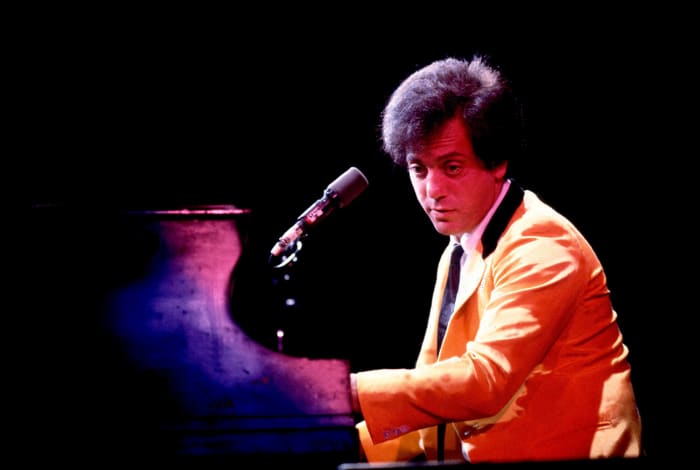
For such a strummy, catchy melody, who would've thought that Billy Joel would be partnering with Satan himself to try and lure good Catholic girls to a realm of hedonistic delights? You might laugh, but the Catholic Church didn't take too kindly to this song about trying to get laid by someone who doesn't believe in sex before marriage. Initially radio stations banned the tune, but after the Catholic Church chimed in on the controversy, the single really started flying off the shelves, giving the track a second life on the charts. Nowadays? It's a concert and radio staple.
"Just the Way You Are" (1977)
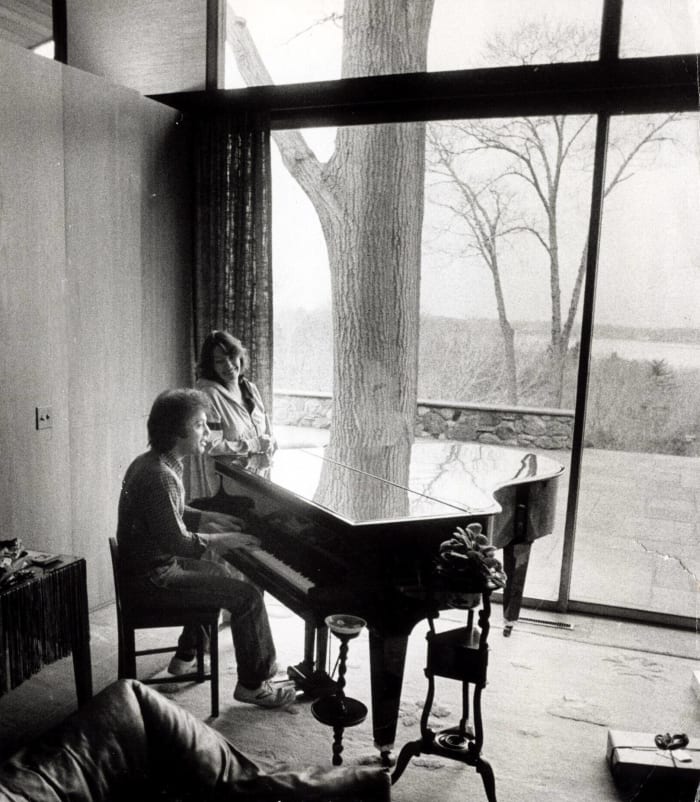
Joel's first-ever single to hit the top 20, the top 10 and even the top 5 of the Billboard charts (peaking out at No. 3), this wedding DJ slow-dance staple is one of the most straightforward, heartwarming ballads. "I'll take the good times/ I'll take the bad times / I'll take you just the way you are"— the beauty of his lyrics is found in their direct simplicity. This song is of the era but somehow hasn't aged a day, those post-chorus saxophones adding just that right amount of glowing color that his other love songs had lacked (and we're all about those 10cc-styled backing vocal synths). Lovely doesn't even start to describe it.
"My Life" (1978)

The one-time theme song to the TV show "Bosom Buddies," "My Life" is an exemplary piece of late-'70s pop music, and it's got the pedigree to prove it. (Yep, that's Chicago's Peter Cetera and Donnie Dacus on backing vocals.) Featuring another tale of aspirational Americans trying to realize their dreams, this radio-swallowing smash was inescapable upon release, its buoyant pop melody proving irresistible and a clear indication that Joel was deep in his imperial period, knocking out hits like it was nobody's business.
"Big Shot" (1978)

One of the more rocking numbers off Joel's Album of the Year Grammy-winning record "52nd Street," there's a surprising amount of venom on "Big Shot," which seems to mock someone who went a little too hard at a party and is now suffering the hangover consequences. It's a memorable tune for sure, but the bile in the lyrics is an unusual stance. Rumored to be about Bianca Jagger, Joel has changed his story about the song's genesis a few times, at one point saying this is something he envisioned Mick saying to Bianca while also claiming the song was, in fact, about him. We may never know the answer, but it remains one of his trademark rockers.
"You May Be Right" (1980)

Billy Joel's first-ever group was the drums-and-organ hard rock combo Attila, and they were terrible. Yet after becoming one of the '70s biggest pop stars, he found himself frequently getting lumped into the category of "soft rock," which he wasn't too pleased with. So Joel wanted to create a "rock" album with "Glass Houses," but instead of aiming for contemporary trends, he looked backward to do some Elvis and Springsteen cosplay. "You May Be Right" is a jukebox rocker of the highest order, with its surf-rock guitar lines on the chorus that give some nice new energy to Joel's power pop stylings. The combo proved potent, giving Joel his first U.S. top 10 in two years.
"Sleeping with the Television On" (1980)

Pull up just about any list ranking the best Billy Joel songs, and right next to "Scenes from an Italian Restaurant" will likely be this uptempo cut from "Glass Houses" in which the narrator tries to convince Diane to take a chance on him, as he knows she's looking for a lasting partner but he's getting nothing but mixed signals from her. In warning her of her indecisiveness, he notes that "Tonight unless you take some kind of chances dear / Tomorrow morning you'll wake up with the white noise." It's a portrait of modern-day loneliness that's married to a spry little melody, and all these decades later it still rings true.
"Allentown" (1982)

While Billy Joel has always had a bit of Broadway flair in his songwriting, "Allentown" feels like the opening number for a musical that never will be. Basically turning Studs Turkel's landmark book "Working" into a bop, "Allentown" is an oddly joyous melodic romp about the loss of manufacturing jobs in the central U.S. "So the graduations hang on the wall," he sings, "But they never really helped us at all." It's a rather brutal critique that nonetheless found its footing on radio, becoming a Top 20 hit in its own right.
"Laura" (1982)

While virtually every band in history cites The Beatles as an influence in one way or another, Joel's inspirations were always a bit more classicist in nature. However, with "Laura," he makes no bones about it and just goes full John Lennon here. From his fried, sneering vocal take to the fact that it's a song about the troubled relationship with his mother, "Laura" shows our narrator helping out Laura with everyday tasks and only getting resentment in return. It's a personal tune that even shows Joel dropping an f-bomb in there just for good measure. There are no easy answers on "Laura," but it remains listenable and, for some people, profoundly relatable.
"Pressure" (1982)

While Joel's 1982 opus, "The Nylon Curtain," was a bid for respect from his most hardened of critics, it failed to connect with audiences in the way his last two albums did, selling only a fraction of the copies that "The Stranger" and "52nd Street" managed to move. Nonetheless, "Pressure," with its Andrew Lloyd Webber-styled melodies and structure, shows people trying to figure out all the problems and ills in the world but realizing they may never understand. Even if the synths during the chorus haven't aged particularly well, "Pressure" follows "Allentown" by being one of the album's most memorable moments.
"Leave a Tender Moment Alone" (1983)

Newly in love and happy to abandon some of his loftier arty pretensions, Billy Joel's "An Innocent Man" saw him finding inspiration in the classic rock and R&B styles he grew up with, the back of the album explicitly spelling out whom he was paying homage to. For "Leave a Tender Moment Alone" — the album's fifth (!) single — he paid tribute to Smokey Robinson, laying on slow-dance meet-cutes and wrapping it all up in a lovely, laid-back melody. Joel has clearly studied up on those that came before him, and while it lacks the immediacy of his other hits from this era, it still makes for a great nominee to any romantic playlist you might currently be making.
"For the Longest Time" (1983)

Yes, it's the song that made everyone in the '80s want to join their college a capella team. Some would say it was overplayed (and although it never hit the Billboard top 10, it still felt inescapable just like "Uptown Girl" was), but in truth, this "homage to doo-wop groups like Frankie Lymon and the Teenagers" sounded like nothing else on the radio at the time, even counting in the "Grease"-indebted revival of bubblegum pop just a few years prior. Even more amazing? All of the vocal parts were actually recorded by Joel himself.
"An Innocent Man" (1983)

Designed as a tribute to acts like Ben E. King and The Drifters, the third single from "An Innocent Man" is a striking number that shows the narrator trying to tell a potential lover that truly, he is not like the other guys who have wronged her. It's surprisingly tender (as most of this album is), but those soaring strings and even more striking vocals are what ultimately seals the deal on this oft-neglected single. While "For the Longest Time" and "Uptown Girl" have endured for decades, tracks like this and "Keeping the Faith" hold charms all their own, which have largely been overshadowed by those two monster hits.
"Running on Ice" (1986)

Three years after the mega-success that "An Innocent Man" was, Joel — like so many survivors of the '70s music industry machine — succumbed to the production styles of the '80s, making his next pair of albums sound plastic and vacuum-sealed, those synths and octagon drums dating these records in a rather unfortunate way. However, great songwriting will always endure, and on the album opener, "Running on Ice," Joel is at his Broadway-pomp best, borrowing stylistic choices from The Police and continuing to harp on one of his favorite themes (class differences and whether material goods lead to a meaningful life). It all adds up to a great three-minute slice of pop-rock that was somehow never released as a single.
"This is the Time" (1986)

Even if he's backed into a corner, Billy Joel always has a secret weapon in his pocket: the ability to write an anthem. "This is the Time," the third single from "The Bridge," serves that purpose, using some well-placed keyboards and pop song rising actions to deliver a fun if admittedly generic call to action, as these are the days to hold on to, to never forget. Despite the whole album being one of the lower-selling releases of Joel's career, this effective (if inoffensive) pop chorus still holds up all these decades later, and we'll even argue that it's worth another listen right now.
"Why Should I Worry" (1988)

While not written by Billy Joel, the music legend's fingerprints can be found all over the beloved animated Disney film "Oliver & Company," about a lost kitty that finds a group of dogs that he tries to fit in with while going on adventures. Joel voiced one the leads: Dodger the dog, who has "street savoir-faire" to spare. The best part of the entire film is Joel's standout musical number, "Why Should I Worry," which features catchy chorus vocals and a wry bit of attitude (along with countless NYC-specific references). The song never made it on to any Billy Joel album proper but did manage to sneak its way into the 2005 "My Lives" box set for his hardcore collectors out there.
"And So It Goes" (1989)

Led by the best-selling, widely mocked, decade-defining novelty that was "We Didn't Start the Fire," Joel's 1989 album, "Storm Front," was largely dismissed by critics, noting how Joel was so caught up in the production styles of the time that he forgot what made his songwriting and performances so special. Yet tucked onto the back of the album was a piano ballad called "And So It Goes" that was released as the record's sixth single but barely climbed into the Billboard Top 40. Haunting and purposeful, this remains one of his most underappreciated songs, the slow pace and his aching vocals giving true weight to this recounting of why his last relationship didn't work out. If time had any justice to it, this would be in contention as one of his greatest-ever ballads.
"River of Dreams" (1993)

"In the middle of the night (middle of the night) / I go walking in my sleep (I go walking in my sleep)" — you probably have the rest of it stuck in your head right now, don't you? Instantly catchy and seemingly ready to pop up in an animated Disney musical at the drop of a hat, "River of Dreams" marked Joel's confident foray back to the top of the charts, largely redeeming him in the eyes of the people who found "We Didn't Start the Fire" far too cloying. The song was a best seller, Grammy nominee and a feather in the cap of his already-legendary career, proving that he truly could go out on top.
"Lullabye (Goodnight My Angel)" (1993)

Although "River of Dreams" will go down as Joel's final pop album, his swan song got a decidedly mixed reception, loved by some critics while dismissed as just another album in his long artistic decline by others. Although the title track made the LP sell very (very) well, this affecting ballad -—dedicated to his daughter — remains an unpretentious, heartfelt wish to be with her throughout everything in her life. Released as the fourth and final single from "River of Dreams", this remains one of his last great pop takeaways and a great way to end any Billy Joel playlist.
Evan Sawdey is the Interviews Editor at PopMatters and is the host of The Chartographers, a music-ranking podcast for pop music nerds. He lives in Chicago with his wonderful husband and can be found on Twitter at @SawdEye.
More must-reads:
Trending in Entertainment
Customize Your Newsletter
 +
+
Get the latest news and rumors, customized to your favorite sports and teams. Emailed daily. Always free!
Use of this website (including any and all parts and
components) constitutes your acceptance of these
Terms of Service and Privacy Policy.

